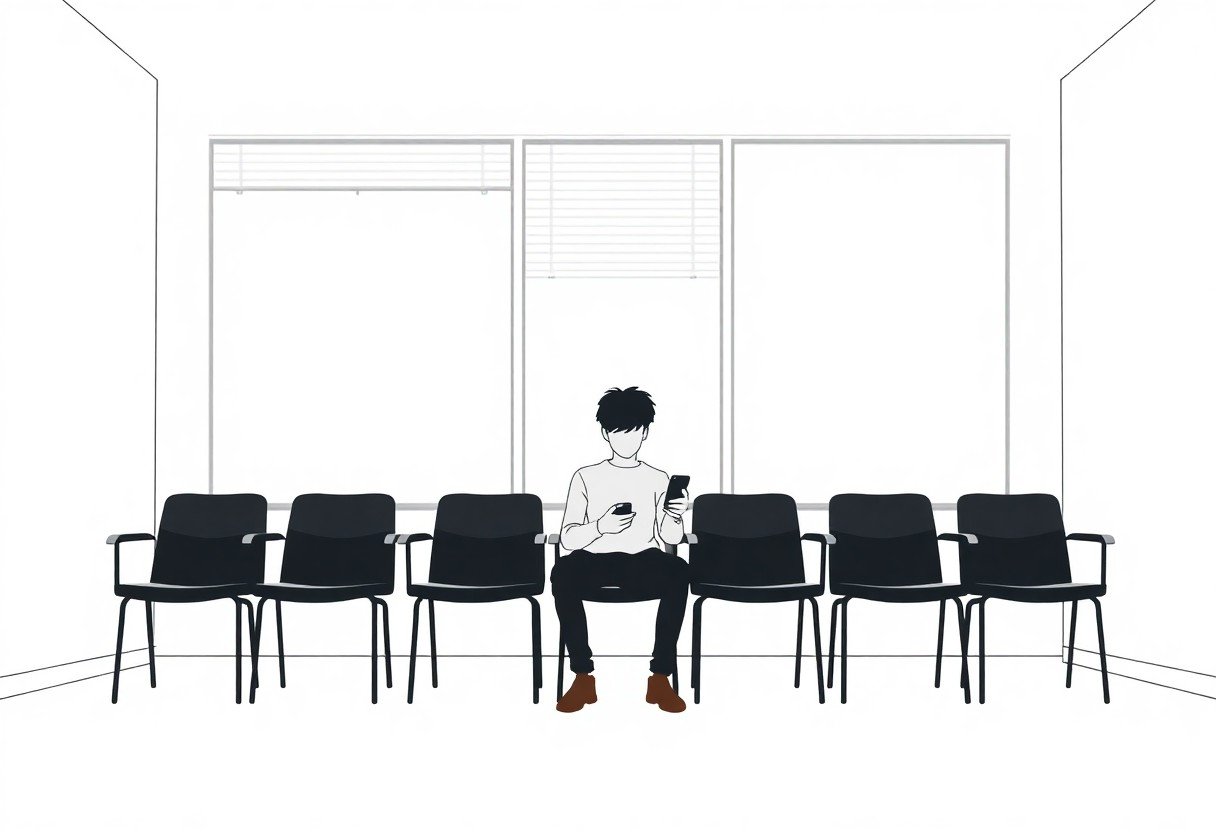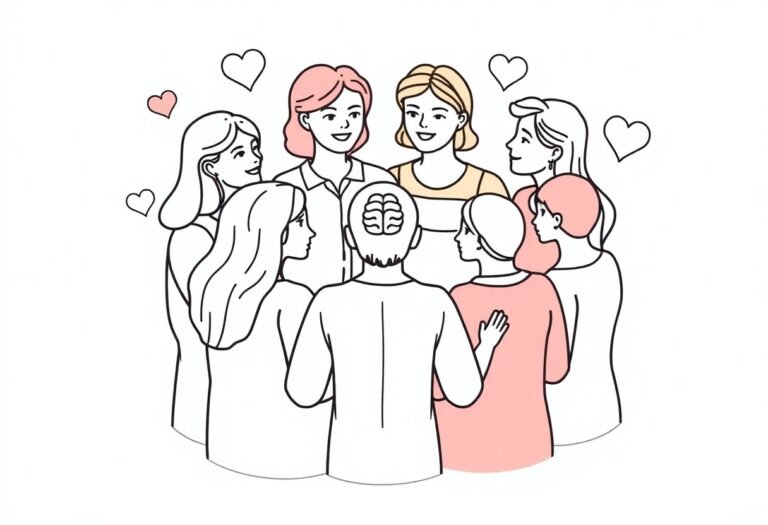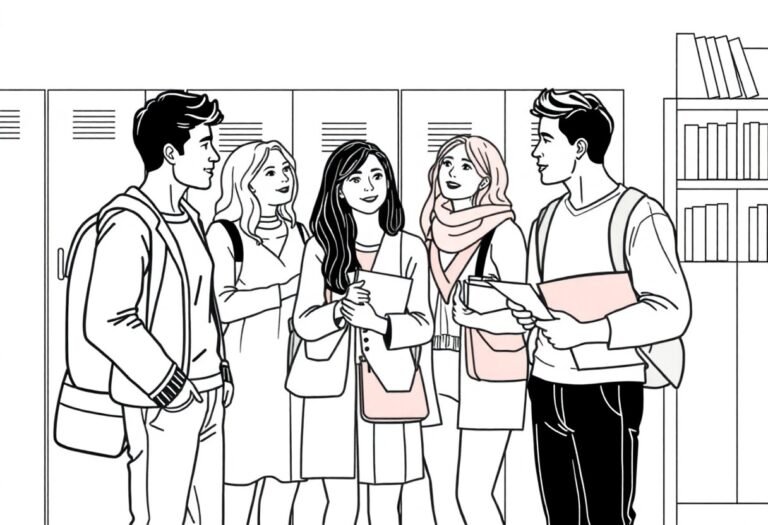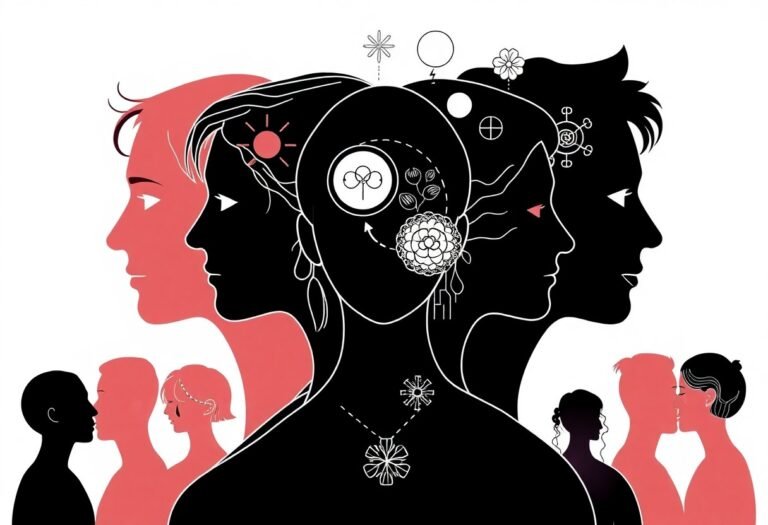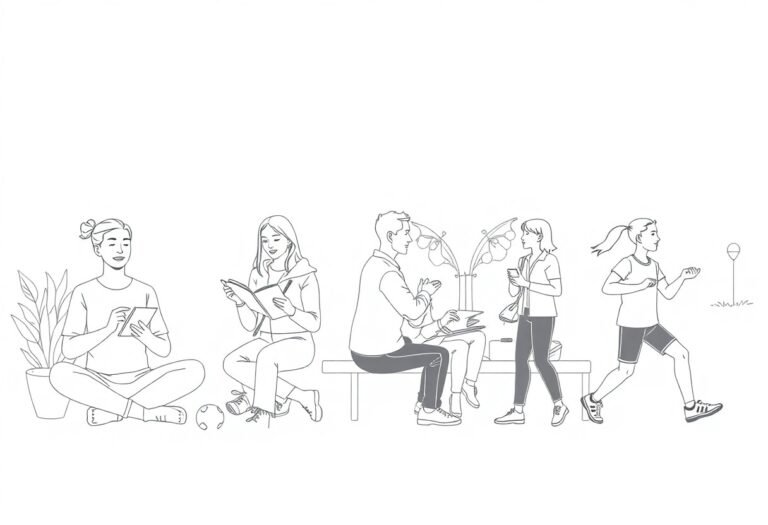How Can Social Isolation Affects Teen Mental Health And Daily Functioning?
It’s vital to understand how social isolation can deeply influence your teen’s mental health and everyday life, particularly regarding how social isolation affects teen mental health. When you feel cut off from your peers, it can lead to increased feelings of loneliness, anxiety, and depression. These emotions can disrupt your ability to perform daily tasks, maintain relationships, and engage in school activities. Conversely, recognising the signs of isolation and fostering connections can bring about significant improvements in your emotional well-being. This blog post delves into the multifaceted impacts of social isolation, guiding you in supporting your teen through challenging times.
Key Takeaways:
- Social isolation can lead to increased feelings of loneliness, often exacerbating anxiety and depression among teens.
- Limited social interactions may hinder the development of important life skills, affecting future relationships and job readiness.
- Disconnected teens may struggle with academic performance, as social engagement is linked to improved focus and motivation.
- Physical health can decline as a result of social isolation, as it may lead to irregular sleep patterns and decreased physical activity.
- Encouraging social connections and support networks is vital for helping teens navigate feelings of isolation and enhance their overall well-being.
Understanding Social Isolation
While social connections are vital for adolescent development, many teens experience social isolation due to various factors, including the rise of technology that limits face-to-face interactions and the increasing pressures of academic and social expectations. This isolation can lead to a disconnect from friends, family, and the wider community, impacting not only their emotional well-being but also their daily lives.
Definition and Causes
To understand social isolation, it’s important to recognize that it involves a lack of social interactions, which can be caused by factors such as bullying, mental health issues, family dynamics, or even technological dependence. When you feel disconnected from your peers, this isolation can exacerbate feelings of loneliness and affect your overall mental state.
Effects on Teen Mental Health
Mental health can deteriorate significantly due to social isolation, leading to issues such as anxiety, depression, and low self-esteem. When you lack meaningful connections, it can result in feelings of hopelessness and despair, further fueling negative thought patterns. The absence of supportive relationships may also limit your coping mechanisms, making it more challenging to navigate daily stressors effectively.
Social Isolation Affects Teen Mental Health
A lack of social interaction can significantly strain your mental health, contributing to heightened levels of anxiety and depression. This isolation may create a vicious cycle where negative emotions lead to further withdrawal from social situations, making it increasingly difficult for you to develop beneficial relationships. Additionally, without a support network, you may struggle to cope with daily challenges, potentially leading to a decline in academic performance and overall well-being. Connecting with peers, expressing your feelings, and seeking help can pave a positive way forward, lifting the weight of isolation.
Psychological Impacts of Isolation
One of the most significant psychological impacts of social isolation on teens is the profound effect it can have on their mental health. Isolation can lead to feelings of loneliness and disconnection, often resulting in increased levels of stress and anxiety. As social beings, your need for connection is vital; without it, the brain may respond negatively, leading to a decrease in overall well-being and an increase in vulnerability to mental health disorders.
Anxiety and Depression
Before you realise it, social isolation can spiral into heightened anxiety and depression. As you distance yourself from friends and social interactions, negative thoughts can take over your mind, making it harder to cope with daily challenges. The absence of social support often leaves you feeling overwhelmed and unsure, which can exacerbate existing mental health conditions.
Changes in Self-Esteem
For many teens, social isolation can lead to significant changes in self-esteem. As interactions with peers decrease, you may begin to question your worth and abilities, which can negatively impact how you view yourself. This vulnerability amplifies feelings of inadequacy and can make your sense of identity feel fragile.
Further, the ramifications of low self-esteem can be serious and long-lasting. You may find yourself withdrawing further from social situations, leading to a negative feedback loop that deepens your isolation. Low self-esteem can manifest in various ways, including poor academic performance, reluctance to participate in activities you once enjoyed, or even harmful coping mechanisms. Addressing these feelings early on is vital to preventing detrimental effects on your mental health and daily functioning.
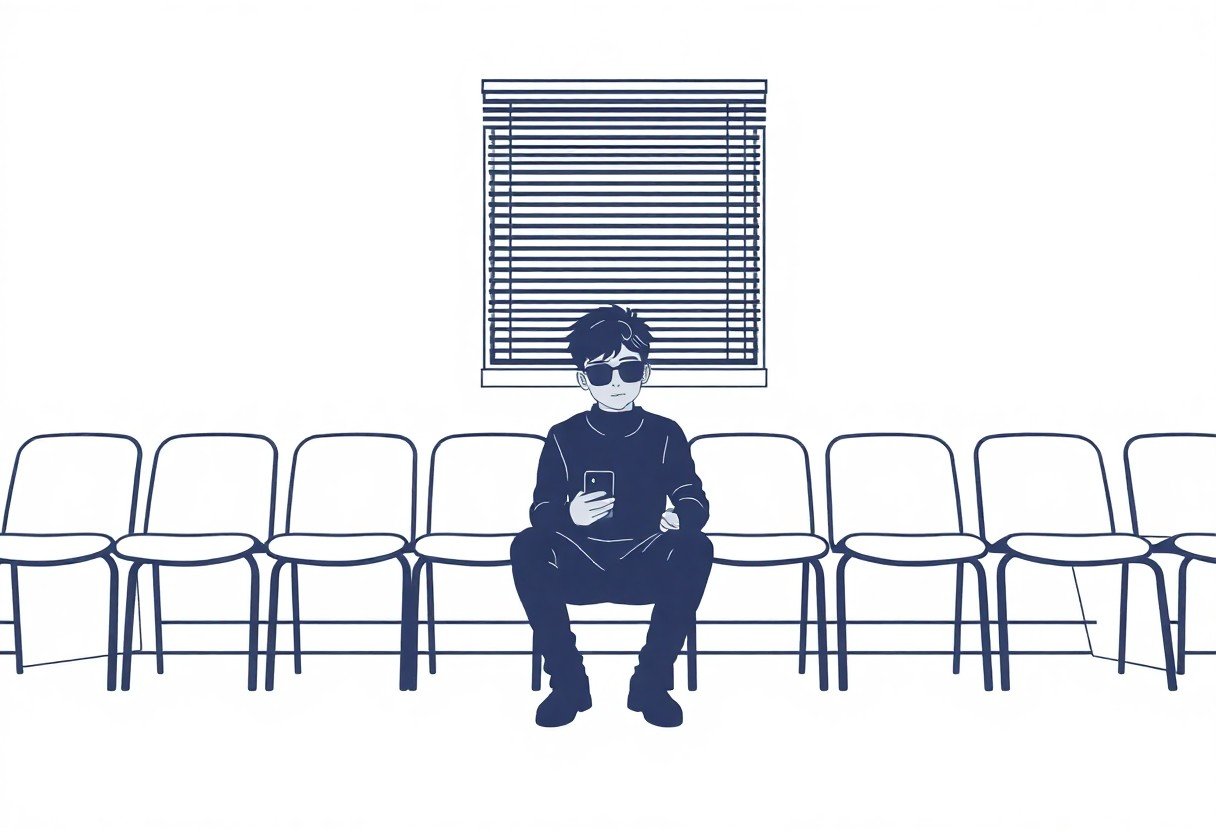
Social Consequences
All aspects of social life can be affected by social isolation, leading to feelings of loneliness, anxiety, and depression. These emotional challenges can impair your ability to connect with others, which may further entrench the isolation. Over time, this can radically alter your social landscape, altering how you perceive yourself and the world around you.
Peer Relationships
The absence of social interactions can significantly strain your peer relationships. You may find it difficult to maintain friendships or build new connections, leading to a sense of alienation. This disconnect can affect your self-esteem and contribute to feelings of inadequacy.
Academic Performance
Consequences of social isolation extend to your academic performance as well. When you feel disconnected from peers, your motivation to engage in schoolwork may dwindle, potentially impacting grades and participation.
Peer interactions play a significant role in your academic performance. By isolating yourself, you might miss out on collaborative learning opportunities and support systems. This can lead to declining grades and increased feelings of stress and frustration. You may also encounter difficulties in concentrating or completing assignments, exacerbating the isolation. Building healthy peer relationships is vital for a positive learning experience, as they not only offer emotional support but also enhance your understanding and retention of academic material.
Coping Mechanisms for Teens
Your journey through social isolation can feel overwhelming, but adopting effective coping mechanisms can help improve your mental health and daily functioning. Engaging in activities that you enjoy, practising mindfulness, and establishing routines can foster a healthier mindset. Finding creative outlets, such as art or writing, can also provide a valuable escape and a means of self-expression. Staying connected, even virtually, can mitigate feelings of loneliness as you navigate this challenging period.
Building Resilience
Building resilience is about developing the ability to overcome challenges and bounce back from difficulties. You can cultivate resilience by setting realistic goals, maintaining a positive outlook, and learning from setbacks. Embracing change and being flexible in your thinking will also empower you to adapt to life’s ups and downs more effectively.
Seeking Support
Building a support network is crucial for your mental well-being. Connecting with friends, family, or even teachers can provide you with much-needed guidance and encouragement. This support system can help you process your feelings, combat feelings of isolation, and foster a sense of belonging.
Considering the importance of seeking support, don’t hesitate to reach out to others who understand what you’re going through. Friends or family members can offer valuable perspectives and emotional comfort. Professional help from a counsellor or therapist can also be an important resource, allowing you to explore your feelings in a safe space. Utilise online communities and support groups to connect with peers facing similar challenges; this can reinforce your strength and resilience. Don’t underestimate the benefits of sharing your experiences with others, as it can be a vital step toward healing.
Role of Parents and Educators
Many parents and educators play a vital role in easing the effects of social isolation on teens. It is important to foster open communication, providing a safe space for students to express their feelings and concerns. By being observant and proactive, adults can help identify challenges teens face, facilitating timely interventions and support that can greatly influence their mental health and overall well-being.
Identifying Signs of Isolation
Between changes in behaviour, withdrawal from activities, and a decline in academic performance, you must stay vigilant for signs that your child may be experiencing social isolation. Uncharacteristic mood swings or a disinterest in social events can indicate deeper mental health issues. Identifying these signs early enables you to take supportive actions that can help your teen cope with feelings of loneliness.
Encouraging Social Engagement
Isolation can lead to a downward spiral in your teen’s mental health. As a parent or educator, your role in fostering connections is imperative. Inviting your teen to participate in group activities, clubs, or team sports can help combat feelings of loneliness. It is vital to encourage them to join social settings that align with their interests, offering both comfort and an opportunity for new friendships.
Even small efforts to create opportunities for social engagement can produce significant positive outcomes. Support your teen in exploring hobbies that involve group participation, such as art classes or sports teams, which promote teamwork and social skills. Additionally, consider reaching out to friends or family for community gatherings. The aim is to gently push your teen towards inclusive spaces, fostering connections that may help mitigate the negative impacts of isolation on their mental health.
Resources and Support Systems
Keep in mind that you are not alone, and there are numerous resources available to help you navigate the challenges of social isolation. Reaching out to trusted adults, school counsellors, or mental health professionals can provide vital support. Additionally, communities often offer various programs tailored to assist teens facing mental health struggles, helping you to rebuild connections and foster resilience.
Mental Health Resources
On your journey to improved mental health, consider exploring dedicated hotlines, online therapy options, and local mental health organisations. These resources can offer you immediate assistance and connect you to professionals experienced in addressing the unique challenges teens face.
Community Programs
Between school initiatives and local organisations, community programs can provide you with safe spaces to connect with others and gain support. Many offer activities designed to promote mental well-being, facilitate socialisation, and reduce feelings of isolation.
Even participating in structured community programs can have a significant impact on your mental health. Many of these programs provide workshops, recreational activities, and peer support groups that can foster social connections and boost your self-esteem. You can engage with mentors who genuinely understand the struggles of isolation and offer guidance, friendship, and new experiences. By investing your time in these collaborative environments, you can develop coping strategies that empower you to manage your feelings and strengthen your support network.
Conclusion
From above, it is evident that social isolation can significantly impact your mental health and daily functioning during adolescence. You may experience feelings of loneliness, anxiety, and depression, affecting your concentration and overall well-being. Understanding these effects can empower you to seek connections and support, fostering healthier relationships and improving your emotional resilience. By taking proactive steps to address isolation, you can build a more balanced and fulfilling life as you navigate the challenges of your teenage years.
FAQ
Q: How does social isolation contribute to anxiety in teens?
A: Social isolation can significantly heighten feelings of anxiety in teenagers. When adolescents lack social interactions, they may experience increased worry about fitting in, fear of rejection, and heightened self-consciousness. As their social support dwindles, feelings of isolation can amplify, leading to a cycle of heightened anxiety and reduced willingness to engage socially, which further entrenches their isolation.
Q: What impact does social isolation have on a teen’s academic performance?
A: Social isolation can have a negative effect on a teen’s academic performance. When a teenager feels disconnected, their motivation to attend school or participate in studies may decline. This disengagement can lead to lower grades, incomplete assignments, or even dropping out of extracurricular activities that support educational growth. Support from peers often plays a significant role in encouraging academic success, and without it, teens may struggle to keep up.
Q: Can social isolation lead to increased feelings of depression in adolescents?
A: Yes, social isolation is strongly linked to increased feelings of depression among teens. When adolescents are isolated from their peers, they may feel a lack of belonging and support, which are imperative for emotional well-being. This disconnection can lead to persistent sadness, hopelessness, and a decrease in overall mood. Over time, these feelings can escalate and may require professional intervention if they interfere with daily functioning.
Q: How does a lack of social interaction affect a teen’s self-esteem?
A: A lack of social interaction during the formative teenage years can undermine self-esteem. Social validation from peers is crucial for developing a healthy self-image. When teens are isolated, they miss opportunities to receive feedback and support, which can lead to self-doubt and negative self-perception. As their self-esteem diminishes, they may withdraw further from social situations, creating a harmful feedback loop.
Q: What are some signs that a teen may be struggling with the effects of social isolation?
A: Signs that a teen may be struggling with the effects of social isolation include changes in mood, withdrawal from previously enjoyed activities, decline in academic performance, and increased irritability or defensiveness. Additionally, they may express feelings of loneliness, lack of interest in socialising with friends, or exhibit changes in sleep and eating habits. Recognising these signs early can help parents and guardians provide appropriate support.
Check your mental health symptoms on NHS.
Mental Health in Children and Adolescents | Mental Health and Demographics

